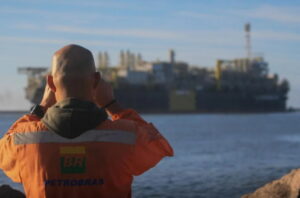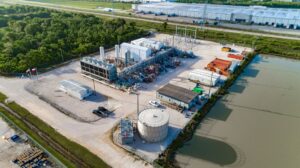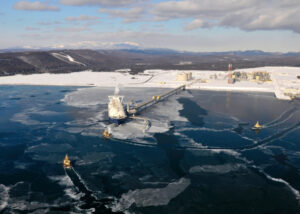U.S. oilfield services giants suspend Russian operations
Three U.S. oilfield services providers – Halliburton, Schlumberger, and Baker Hughes – have decided to suspend any future investments and operations in Russia following the country’s attack on Ukraine and the widespread sanctions imposed as a result of the war.

The attack gave rise to numerous sanctions not only against Russia but also against its companies, oligarchs, and specific people, further impacting the energy market, which has been experiencing a period of instability ever since the war started.
The announcements made by the three oilfield services players came on the heels of multiple exits by oil and gas giants such as BP, Equinor, Shell, and ExxonMobil, which decided to bring their businesses in Russia to an end.
The distancing from Russia, its companies, and products was also illustrated through the criticism of Shell’s decision to buy a cargo of Russian crude oil even though it was made with the security of supplies at the forefront of the oil major’s thinking. Shell then apologised and reiterated that all profits from this oil cargo would go to a dedicated fund to help the people of Ukraine.
Related Article
In its statement from last Friday, Halliburton reported that it had immediately suspended future business in Russia to comply with sanctions that prohibit transactions and work, including for certain state-owned Russian customers. The firm intends to prioritize safety and reliability as it winds down its remaining operations in Russia.
Jeff Miller, Halliburton Chairman, President and CEO, remarked: “The war in Ukraine deeply saddens us. We have employees in both Ukraine and Russia, and the conflict greatly impacts our people, their families, and loved ones throughout the region. Since the start of this conflict, we prioritized employee safety and compliance with all relevant sanctions.”
According to the company, this decision follows the one from several weeks ago, when it halted all shipments of specific sanctioned parts and products to Russia. The firm has no active joint ventures in this country.
Another oilfield services giant, Schlumberger, also informed last Friday that it had reached a decision to stop new investments in Russia and its Chief Executive Officer, Olivier Le Peuch, explained that the company’s main focus was on the health, safety, and security of its personnel and their families not just in Russia and Ukraine, but in the entire region as well.
While commenting on the firm’s decision, Le Peuch, added: “As the situation has developed, we have been evaluating our path forward, and have decided to immediately suspend new investment and technology deployment to our Russia operations.
“We continue to actively monitor this dynamic situation and will fulfil any existing activity in full compliance with applicable international laws and sanctions. Safety and security are at the core of who we are as a company, and we urge a cessation of the conflict and a restoration of safety and security in the region.”
Following the announcements made by its rivals, Baker Hughes revealed on Saturday that it had also suspended new investments for its Russia operations, explaining that it was continuing to comply with applicable laws and sanctions while fulfilling contractual obligations.
Lorenzo Simonelli, Chairman & CEO of Baker Hughes, remarked: “The crisis in Ukraine is of grave concern and we strongly support a diplomatic solution. We condemn violence and our hearts go out to the people and families of those impacted.”
Just like the other two oilfield services players, Baker Hughes also underlines that it considers the health and safety of its employees, colleagues, business partners and their families as a “top priority.”
“We have been continuously monitoring the situation, and today’s announcement follows an internal decision made with our board of directors and communicated to our leadership team earlier this week. We remain committed to act in full compliance,” concluded Simonelli.









